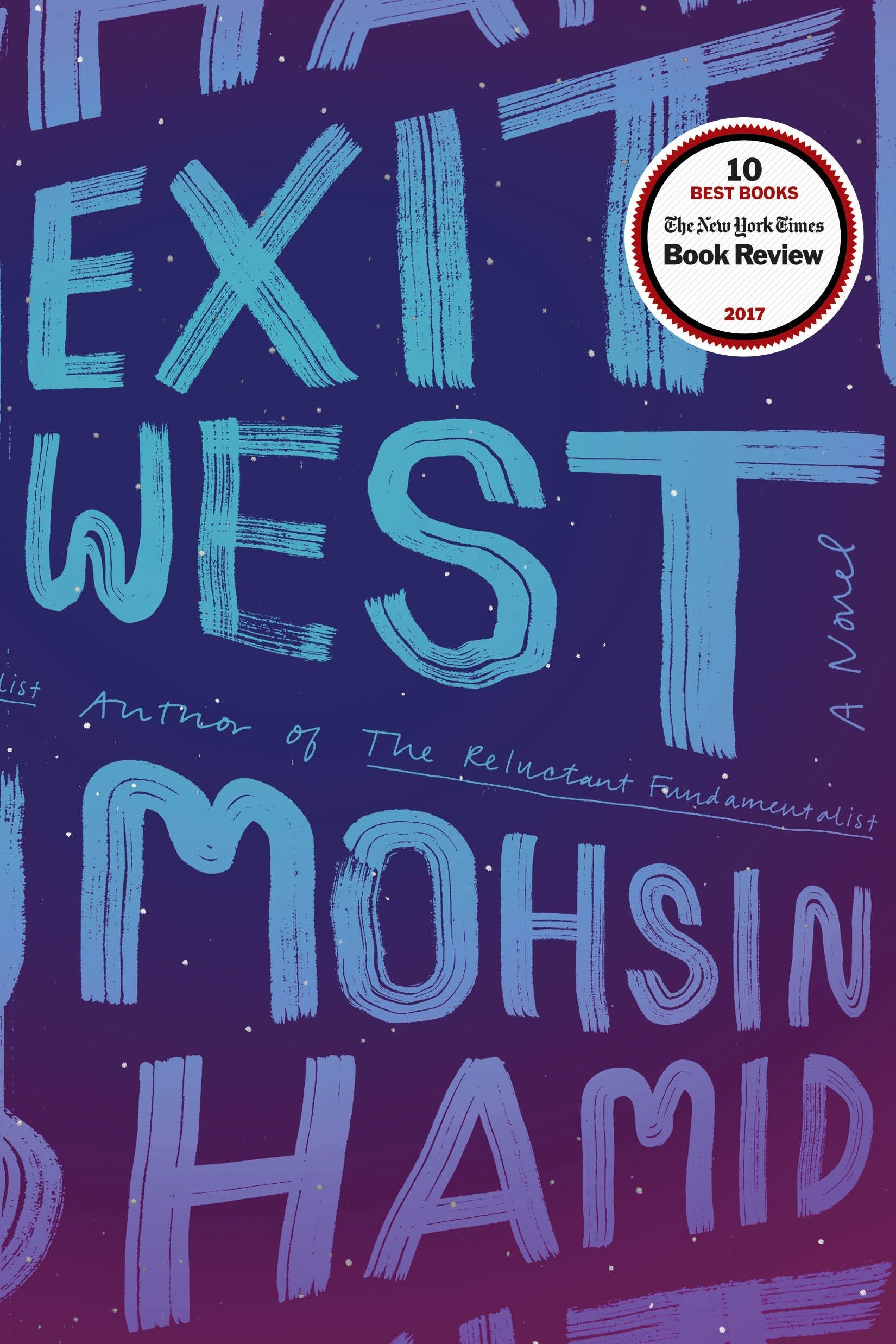Mohsin Hamid’s “Exit West” stunningly portrays the difficulties of emigration and the motivations behind those who choose to flee the countries of their birth. The novel begins in an unnamed city where refugees, militants and repressive government armies abound, and focuses on the developing love affair between Saeed and Nadia amidst their country’s civil war. From the start, they are two unlikely lovers: he lives with his parents, as per local custom, since he is unmarried; she lives alone and drives a motorcycle, wearing a loose dark robe so “men don’t fuck with me.”
Even as sections of their city plunge into violence, with electricity and water shut off, the pair manage to stave off their fears with a variety of pursuits, using psychedelic mushrooms, meeting in near-abandoned hamburger joints, listening to banned recordings together. There are rare moments of beauty amidst the destruction, a temporarily resuscitated lemon tree, physical pleasure in each other’s company. However, after Saeed’s mother is killed by a stray bullet — while searching for an earring, no less — they gradually become convinced by Saeed’s father to leave.
In the novel, the process of emigration is compressed into a single choice of stepping through a frame, with magical “doors that could take you elsewhere, often to places far away.” Nevertheless, as Hamid depicts, the consequences are not so easily avoided. To make their choice easier, Saeed’s father thought it “best he leave the young people rather than make them agonize over stepping through the front door with him watching from behind,” and as if in meditation, the narrator reflects, “when we migrate, we murder from our lives those we leave behind.”
Hamid’s storytelling style is lyrical, wry at times, yet he carefully avoids direct sentimental manipulation of the reader, instead allowing the widening world of the story to revolve around the axes of the only two named characters, Saeed and Nadia. Hamid renders glimpses of their humanity through carefully chosen anecdotes, even as they become faceless, nameless immigrants caught in the tide. Their home remains unnamed, even in memory; rather, the places where they flee — Mykonos, London, San Francisco — are given context to hold onto for stable ground, even as these cities, too, become “swollen by refugees.”
The inclusion of quiet moments — running one’s fingers over an unexpectedly lush towel, a disappointed gaze given but never a word said — amidst the more dramatic upheavals and displacements grant the work an intense richness, furthered by the distilled quality of Hamid’s prose. Their relationship, however, unravels as they contend with the new realities of their lives — Saeed’s grief over his family and growing religiosity, Nadia’s fierce independence — with nights where they sleep in the same bed and do not touch. As much as they might wish, they cannot protect each other from the changes wrought by their harrowing journey.
The novel ends with the pungent nostalgia that only “could-have-beens” will bring, lifetimes of alternate decisions and a yet unfulfilled promise to see the stars. But this poignant moment, too, is still worth savoring, a reminder that not all stories will ever fully be resolved.
Contact Shana Hadi at shanaeh ‘at’ stanford.edu.
